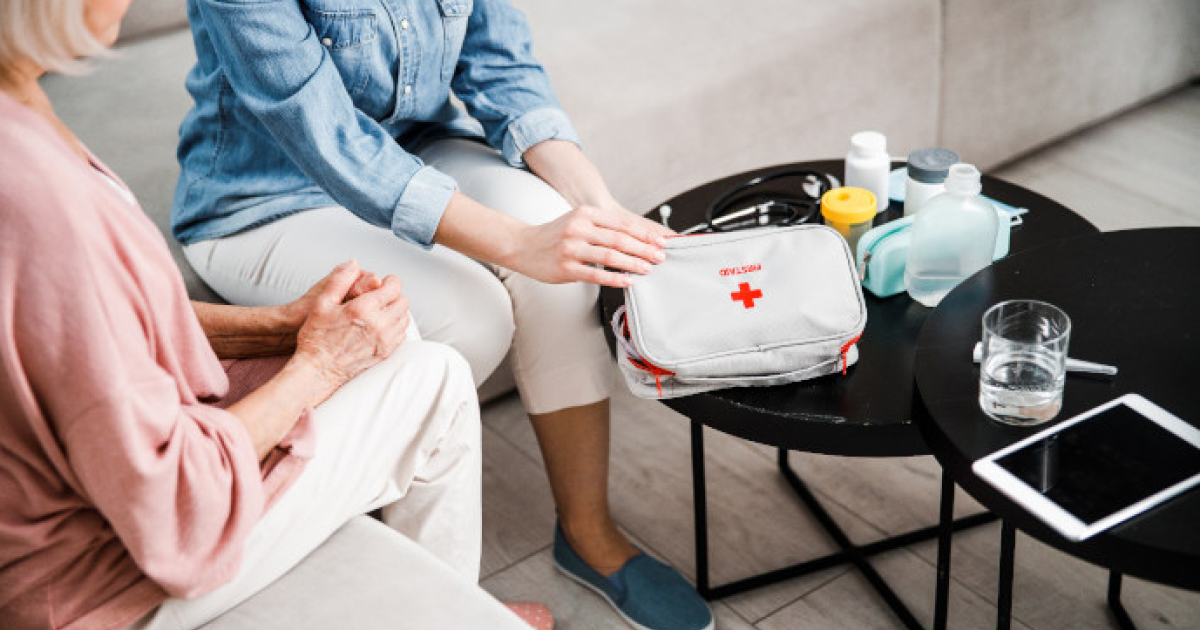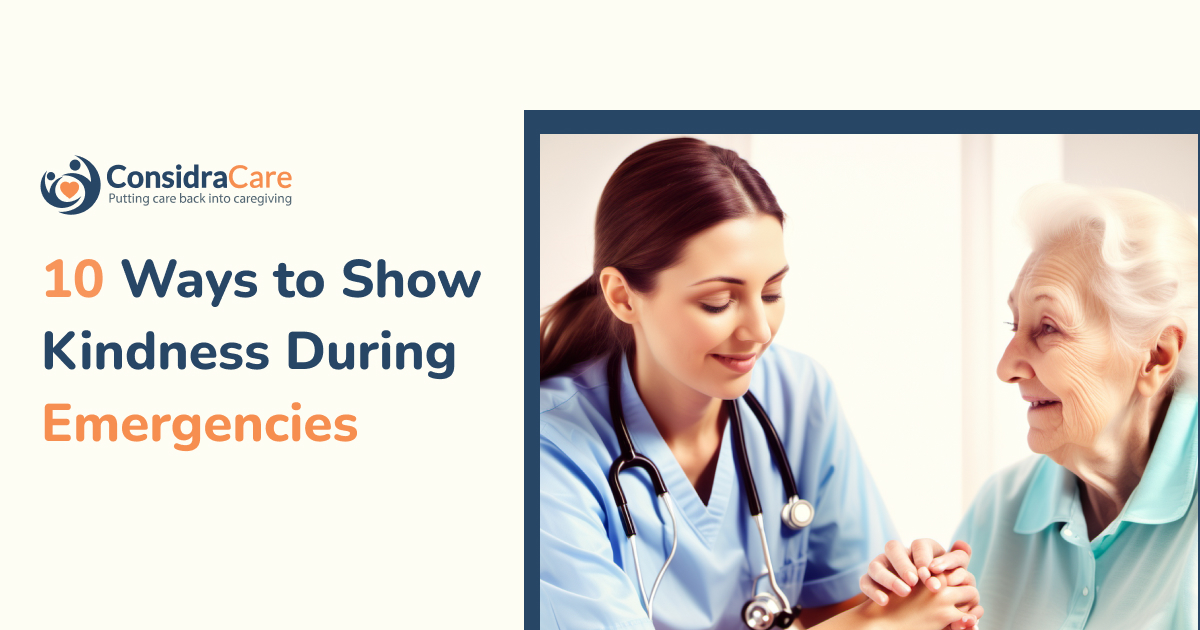In this article, we will offer caregivers tips on how to show kindness and support to seniors in times of need. These simple yet effective strategies can alleviate feelings of fear, anxiety, and confusion and foster emotional resilience in seniors.
Challenges Faced by Seniors During Emergencies:
Emergencies pose unique challenges for patients, particularly for seniors who may experience chronic health conditions and cognitive impairments. These factors can intensify feelings of fear, confusion, and isolation, making it more difficult for patients to cope during a crisis. Studies indicate that seniors are at a higher risk during emergencies, with adults over 65 being more susceptible to experiencing stressors due to emergencies. These stressors can have severe physical and mental health implications, increasing the likelihood of conditions such as heart attacks, strokes, and depression.
10 Ways Caregivers Can Help Seniors in Emergencies:
Acts of kindness from caregivers can profoundly influence seniors’ ability to cope with and recover from emergencies. Simple gestures of compassion and understanding can mitigate feelings of anxiety and loneliness, fostering resilience. Here are 10 ways caregivers can show kindness to seniors during emergency situations.
1. Ensure Clear Communication:
It is crucial to communicate effectively with seniors during emergencies. Offer clear, concise information about the situation and explain the planned actions. Reassure them and address their concerns, making sure they fully understand the emergency plans. Clear communication helps seniors feel more secure and informed.
2. Offer Emotional Support:
In times of crisis, empathy and understanding play a vital role. Engage in active listening, acknowledging seniors’ fears and anxieties. Provide comfort and reassurance by being present and available. Your compassionate presence can be a powerful source of calm and stability for seniors in emergencies.

3. Provide Companionship:
Seniors may experience loneliness and isolation during times of distress. Being present for them will help to alleviate these sentiments. Participate in activities that encourage connection and make them feel included and valued. Your friendship might help them feel less alone and provide emotional support in times of need.
Read More: 5 Ways to Practice Self-Care for Caregivers
4. Advocate for Seniors’ Rights:
Being an advocate for the elderly is an essential duty of a caregiver. Provide them with the essential resources and assistance they require. Create awareness regarding the support services and programs offered by local organizations. In times of emergency, you can effectively assist seniors by advocating for their rights and facilitating their access to assistance.
5. Provide Technological Support:
Technology can be a vital tool for seniors to stay informed and connected during this dynamic era. Caregivers can assist them in navigating devices, apps, and online platforms, ensuring they have access to important information and remain in touch with loved ones and emergency services.
6. Create an Emergency Kit:
Assisting seniors in assembling an emergency kit can be a proactive measure to ensure they have necessary supplies readily available in case of an emergency. Caregivers can help gather items such as non-perishable food, water, medications, flashlights, batteries, a first aid kit, and important documents.

7. Facilitate Connections with Other Seniors:
Encouraging seniors to participate in local support networks or services can provide them with additional emotional support and a sense of community. Caregivers can help them find and connect with other seniors, fostering relationships that can be a source of comfort and reassurance during emergencies.
Read More: How to Help Seniors Stay Connected to Their Loved Ones
8. Assist with Emergency Preparedness and Planning:
Preparing for emergencies is crucial for seniors’ safety and well-being. Caregivers can work together with seniors to develop personalized emergency preparedness plans. By educating them on necessary precautions, ensuring they have essential supplies, and discussing evacuation procedures, caregivers empower seniors to feel prepared and confident in their ability to respond effectively.
9. Share Moments of Joy and Kindness:
Small acts of kindness can have a big impact. Look for opportunities to share moments of joy, whether through shared laughter, listening to their favorite music, or enjoying a simple outdoor activity together.

10. Share Important Contacts and Resources:
Caregivers can compile a list of emergency contacts and relevant resources for seniors, ensuring they have access to essential services and support in times of crisis. This can include contact information for local authorities, medical professionals, support organizations, and community assistance programs.
The Bottom Line:
When there is an emergency, caregivers’ jobs go beyond just giving physical care. This guide emphasizes how much kindness and understanding can change the lives of seniors in times of trouble. By implementing these techniques, caregivers can improve the health and fortitude of the old, proving that kindness is still a strong force for good even in the face of emergencies.
Want to learn more?
Reach us at wecare@considracare.com, or call us at 1-855-410-7971, and we will be happy to assist. Discover more tips in our information booklets or on our resources page.
FAQs:
1. How can you show kindness to others?
By being present, offering comfort, and engaging in active listening, you can show kindness to others.
2. How do you respond to an emergency situation?
Respond to an emergency situation by communicating clearly, reassuring individuals, and taking necessary actions.
3. What is the first treatment?
First treatment refers to the initial medical care provided to a person in an emergency situation before professional help arrives.
4. What are acts of kindness for caregivers?
Acts of kindness for caregivers include offering emotional support, providing companionship, advocating for seniors’ rights, and facilitating connections with others.
5. What is shock in first aid?
In first aid, shock refers to a condition where the body’s vital organs are not receiving enough oxygen and nutrients due to a sudden drop in blood flow.

